Compared to a few years back, more people are embracing the idea of a career change. According to the Sloan Work and Family Research Network, the present generation expect to switch careers more often than older generations.
As much as 58% of workers are willing to have a pay cut just to change industries completely.
People change their careers for different reasons.
From a change in values or goals to newly found interests; needing flexible hours to more money. But, ultimately, we switch careers or jobs if we’re unhappy where we’re right now.
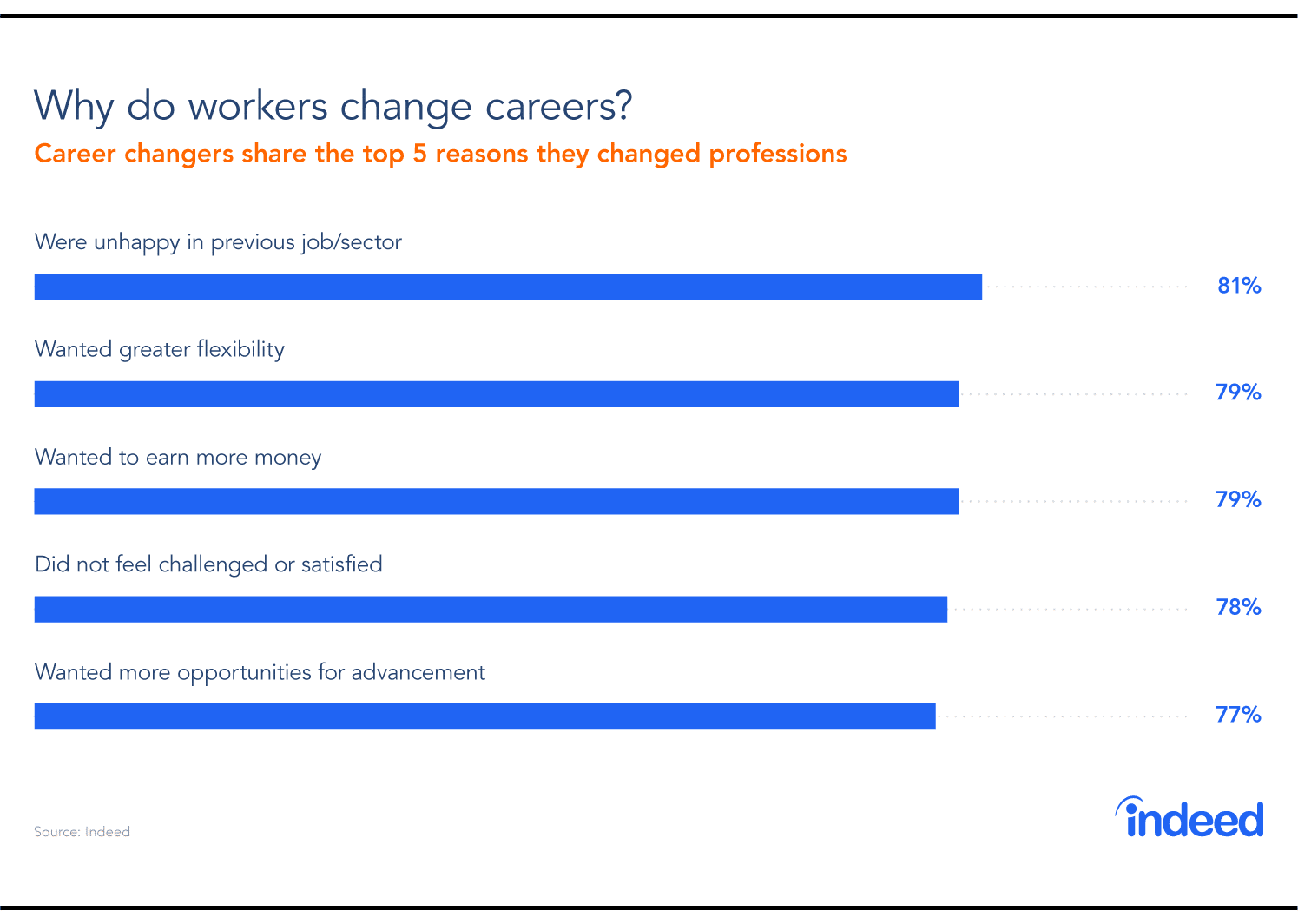
Image credit: Indeed.com
Albeit, you don’t want to make blind decisions just because you’re unhappy where you are at the moment.
That’s why I interviewed Master The Talk’s Yuri Kruman. Yuri and I talked about how you can switch careers and access the right tools to be successful at it.
Know Before You Switch
Yuri’s answers rest on relaunching your career intelligently. Here’s what to keep in mind:
There Are No Shortcuts
Switching to a new career might take longer than expected. You need to figure out what you want to do, which might involve a lot of exploration, reflection, and confusion. Plus, you might need to take a few training sessions to boost your chances of success in your new career.
Go At It At A Steady Pace
Don’t rush into that new career. Changing careers require consistent and time-consuming steps rather than a sudden jump.
Start With Small Actions
You need to map out a solid plan with multiple contingencies in place before taking that leap at a new career. This would save you from being sloppy.
However, you still need to take brave and manageable leaps more often than not. This might seem scary, but it’s necessary to open new doors in your chosen career path.
Explore Without Any Expectations
You might seem hesitant to invest time into something if you’re not certain that it would lead to anything worthwhile. This becomes circular because you can’t know if something is worthwhile without giving it a try.
Accept Your Unique Journey
Don’t apologize for whatever background you come from. That mindset won’t serve you well during interviews for new roles. You need to stop self-handicapping and embrace your unique journey.
Key Takeaways From The Interview
Before proceeding, here are some key points to learn from this interview:
- Serve your clients well, or you don’t have any business being in business.
- Don’t hide your background. It gives you your unique story and edge.
- Subscribe to the best in your industry, line of business, or trade
- Get clear on what you want before you change careers.
- Investing in personal and professional development is a huge investment.
- Starting a company might be hard, but it’s not impossible.
- Instead of rushing into a new job, first, figure out what your mission is and what problems you want to solve.
My Discussion With Yuri Kruman
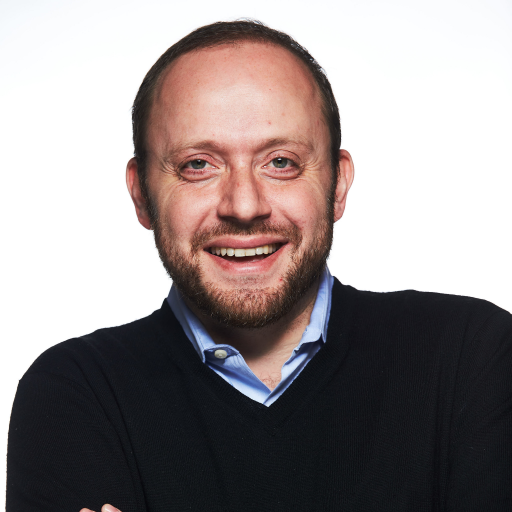
1. Hello, please introduce yourself
I have an HR consulting firm, and I do executive coaching as well. I’m also an author, speaker, and corporate trainer, amongst other things.
2. Can you tell us about Master The Talk?
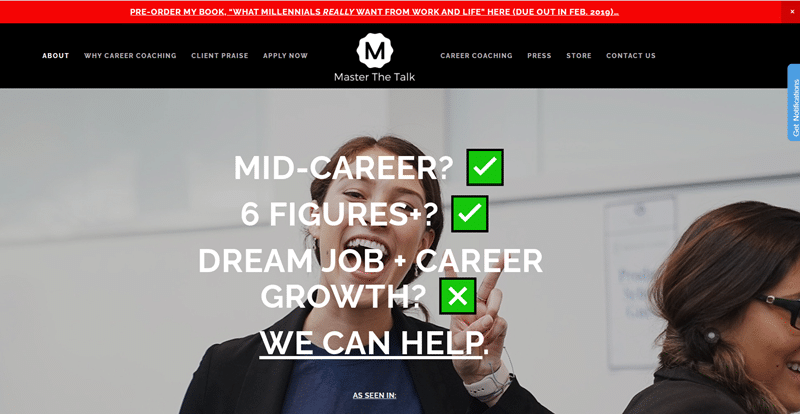
That’s a company I started about seven (or maybe more) years ago for executive coaching. I work with mid-career millennials to either get better at their job or switch jobs or even careers.
The point is, even in the best companies, people aren’t essentially aligned with what they’re doing or with their mission or vision. That’s why they tend to leave or want to do something that closely aligns, even if it pays less. Although it doesn’t have to.
3. Why did you make it your top priority to be a career coach?
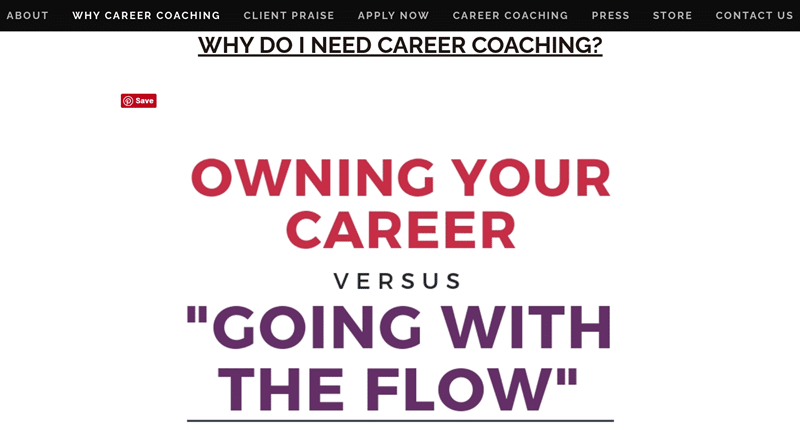
I had to change careers myself five times already, and I’m starting my sixth career here. So, I definitely learned along the way by making a lot of mistakes through trial and error.
I also figured out what I’m really supposed to be doing. Not based on family or societal expectations, but based on who I really am and how I see the world. From there, I realized that if I could figure all that out despite having very few actionable life skills and leaving college and law school, then other people definitely can do the same.
Based on that premise, I started helping friends first to negotiate a higher salary or ace interviews. Eventually, I’m like, you know what? I think I should do this full-time; I think I’m onto something pretty special here. I quickly grew it into something that’s really affected a lot of people very positively.
I’ve worked with about 1500 plus clients over this time, and we’ve been very fortunate to get them great results.
4. Creating a brand as big as Master The Talk must have its share of challenges. What difficulties did you face in the developmental phase, and how did you manage them?
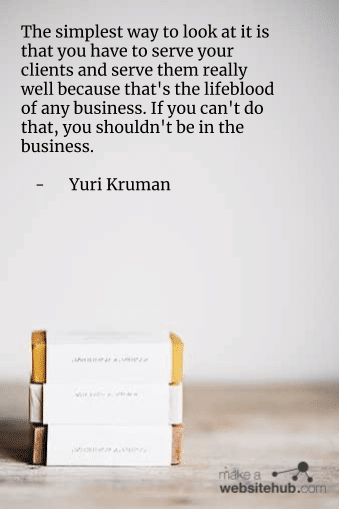
The most obvious ones are;
- Who the hell am I?
- I don’t have any social proof.
- I was trying to find clients and charge them a rate that was, in some way, proportional to the value that I was delivering.
- Getting on different platforms
- Doing my own marketing and pretty much everything there has to do with building a company.
Starting with websites and marketing and lead gen and even graphic design, I created a lot of content.
The challenges are pretty typical for any startup. But I would say that in my case, it took me a while to really get revenue going, which is the most important part.
The simplest way to look at it is that you have to serve your clients and serve them really well because that’s the lifeblood of any business. If you can’t do that, you shouldn’t be in the business.
Thankfully, that’s what I was able to do pretty much better than everything else for a while.
Eventually, I started creating a lot of content, doing my own PR and media. I also got into the Forbes coaches council, which was a huge boost to my business, and shoveled my rates. Then, I started working with many more of my ideal clients aligned with how I see the world and with my framework.
If you take away all the tire kickers and complainers, you see that ‘Wow, that’s pretty good. I can charge people, the right people, a lot of money and get them fantastic results. They’re happy. I’m happy; it’s good for everybody.
5. As a coach yourself, do you invest in your personal and professional development?
If I didn’t, what kind of coach would I be?
You have to see it like this; if you’re preaching to people to get personal and professional development and you’re not getting in yourself, you’re full of it.
For me, that’s been by far my biggest investment. I’ve been very fortunate to work with some of the best coaches in the world throughout all these years. I’m always on the lookout for:
- New courses
- Books
- Content
- Lectures, and
- Training.
I’m always hungry for not just best practices, but what’s going to be the best several years out.
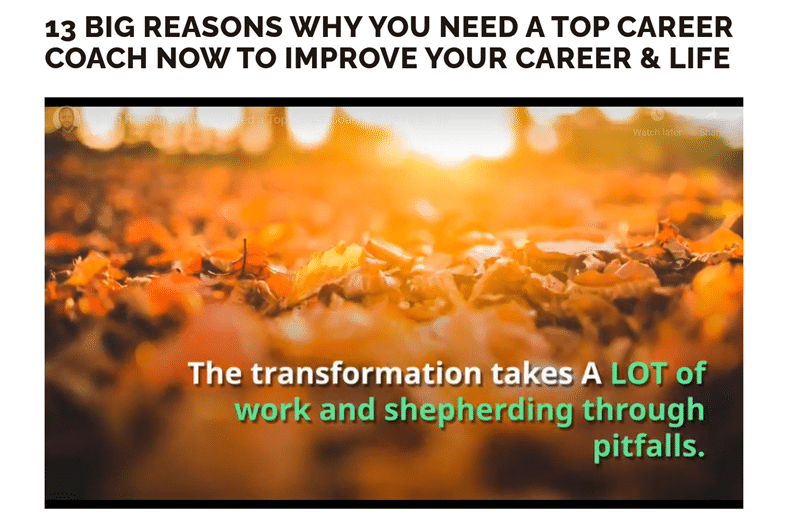
6. Who are the coaches you listen to? What training do you use for yourself?
Some of this is around how to get into large publications. I had a course like that where there are all sorts of things about best practices from the consulting side and the employee side, and an employer branding side.
Pretty much all the different resources that I could find
The Society for Human Resource Management (SHRM), has been a pretty amazing resource because that’s what they do.
I’ve worked with all kinds of different executive coaches. I’ve worked with brand consultants, vendors; pretty much across the whole spectrum of building a business.
Sometimes with them, other times they help me out.
I’ve worked with people who specifically help consulting companies build a solid pipeline and go up to six and seven figures.
There’s no shortage of different cultures or ways to improve me and the business. And like I said, I’m always looking for more ways to do that.
7. Who do you allow into your inbox — whether you’ve bought from them or not — and why?
There’re some really excellent newsletters on LinkedIn. Some people are either six or seven-figure consultants; some do all kinds of research around the workplace. Also, some people do research and writing about things like time management.
I’m putting out a book myself in January, and this is for context about the kinds of things that I devour.
There are four conversations; one is about the body. You have to figure out what your body wants and needs and then provide it. So, when you think about healthy diets, exercise, and so on, that’s very important because it’s the basis.
Number two is around mental models on my skills, essentially things like
- Decisions-making
- Information processing
- Expectations management, and
- Stress management
Essentially on how to clean-house in the sense that you need to unclutter your head.
The other part is life skills, meaning how to manage your finances, career, and business.
The third conversation is dealing with other people. That’s like the sexy coaching stuff that I’m always teaching my clients.
That’s around everything career-related
- How to do a job search
- How to get promoted
- Get paid more
- How to get better at being a leader
- Managing people, and so on
Also, things like how do you make sure you have the right kind of conversation with your employees or your boss, advisors, investors, vendors, as well as your wife and kids.
The last one is around a conversation with God and the universe. That’s the piece that ties everything else together. Every person has to feel like they’re a part of something greater.
You can’t just say, ‘Oh, kumbaya, you’re part of the greater corporate-whatever’ because that’s not going to do it.
You essentially have to help people, which is my perspective on HR. You have to provide people with personal development because they will mess up their personal lives if you don’t. And if they do that, they can’t do their best work.
I believe that’s on the company because the company is always looking for the best talent and the best output from their workers. That’s the reason for the book.
The reason I mentioned it is because I’m really devouring content on any of those four very large umbrella subjects. That’s because, as the head of HR, I’m always looking to empower people to live their best life and to do their best work wherever they are or wherever they want to go.
8. I noticed that the HR, Talents, and Systems Consulting website looks a lot like Master The Talk. Do you own both platforms? If so, why do you have two websites that do almost the same thing?
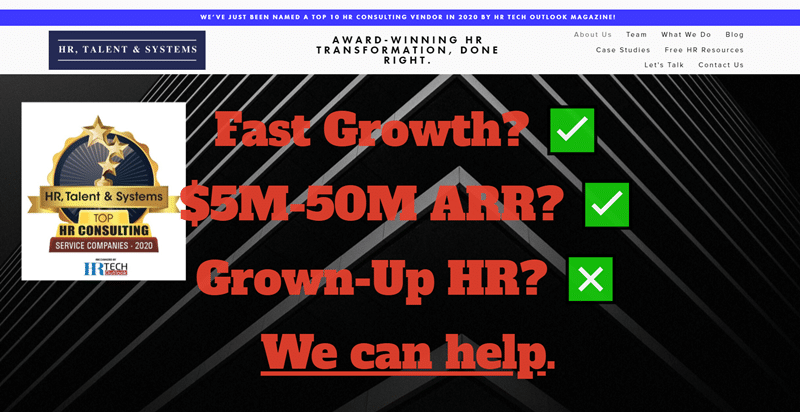
I own both platforms. I don’t know if they’re quite the same thing, but the two parts of my work are intimately connected.
When I go in as the head of HR to companies where I consult, my goal is to coach; that’s the heart of all the work. Then, I have to implement new systems to make sure that the change is sustainable. And, we have to make sure, for the HR part, that the trains run on time.
My real focus is on personal and professional development, and I’m pleased that that’s where I’ve seen the biggest change. And that’s why I wrote the book.
9. I know you recently launched a book, “What Millenials Want From Life and Work.” Please tell us about the book. What inspired the book, and what message do you want to pass with it?
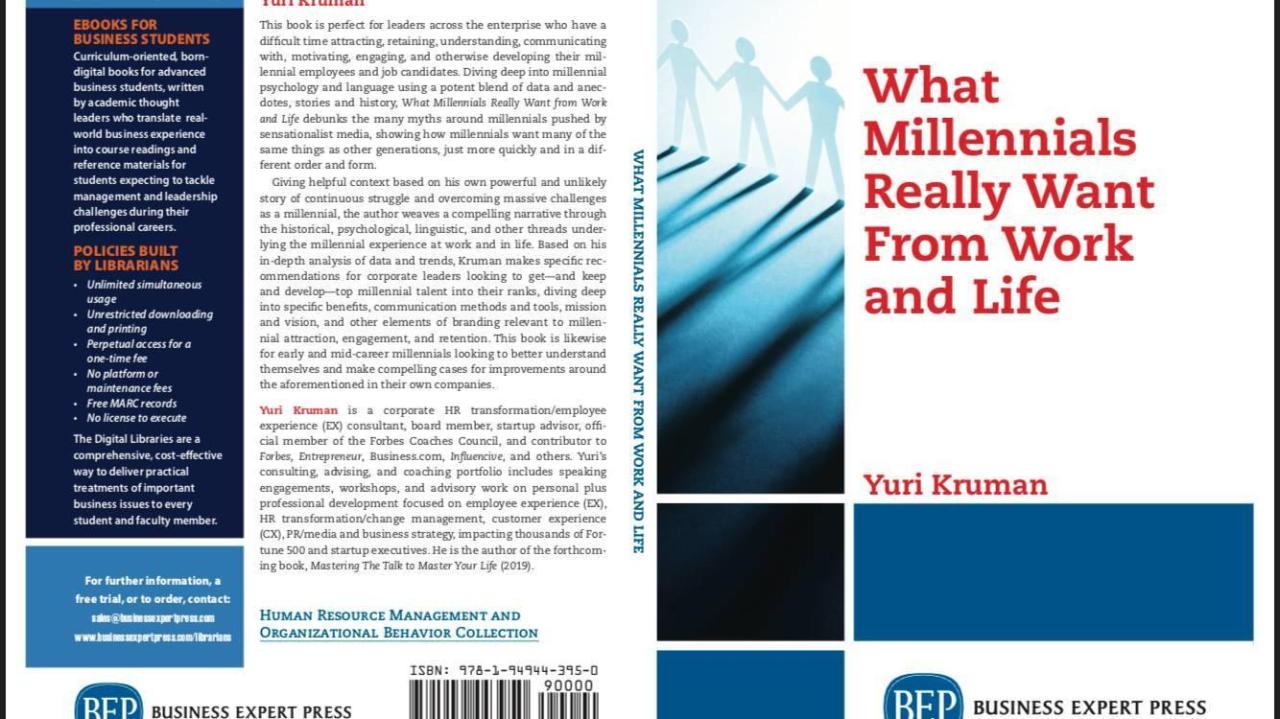
Image credit: LinkedIn
What inspired me partly is my own crazy journey of career changes and all sorts of crazy challenges and massive debt, trying to figure out who I am and where I’m going, and how to support a family in New York.
The other part is that I really got sick of hearing about millennials being flaky and entitled. Especially from people that aren’t millennials.
Were they actually any different from other generations or not? So I took a look at the data.
I had an opportunity to do a book. Somebody from this press reached out, and they said they were taking book proposals. I was like, Oh, I think it’s a good time for me to write this book. So that’s what I did.
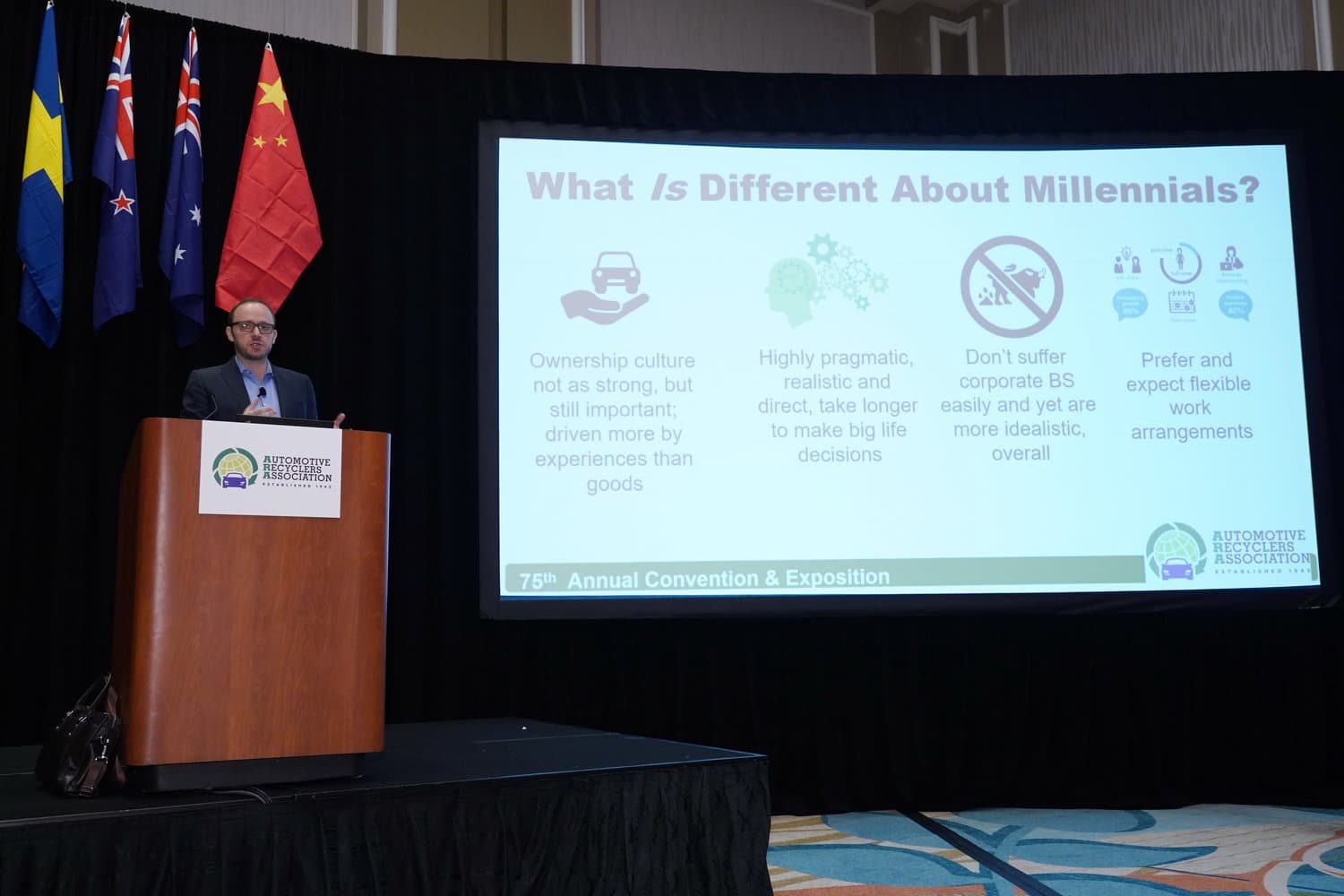
Image credit: YuriKruman.com
I just took a look at the data around the question: ‘Are millennials really that different from previous generations at the same stage?’ And the answer was, for the most part, No. They’re pretty much exactly the same.
It’s just that millennials, for the most part, don’t like corporate stuff anymore. And, they’re much more likely to want things faster, especially with the second downturn. That means that all the different life cycle events are postponed, whether that’s a wedding or buying a house.
That’s why we don’t buy the whole narrative of ‘pay your dues’ because we know that’s more or less just a command and control kind of directive. We just want to get there faster because we’ve been held back.
But, in terms of the average tenure of millennials at the same stage as previous generations, it’s exactly the same. The kinds of things that we want are very similar. Even if you look at a gig economy and startup rates, for the most part, it’s a lot of fluff.
Entrepreneurial-ism is ironically at a low, and it’s easy to start a company, but it’s a lot harder actually to grow into something meaningful, not impossible, just harder. And, it’s not that different; what we want from work and life.
10. Tell us a bit about your soon-to-be-launched book, Be Your Own Commander-in-Chief.
Did the book [What Millenials Want From Life and Work] inspire your soon-to-be-launched book, Be Your Own Commander-in-Chief?
Yes, I mean that’s part of it. Instead of just looking at the data, I’ve done a lot of coaching around helping people figure themselves out and finding the right context to do their life’s best work.
In the beginning, it was just a book about my coaching and what I’ve learned. But I realized I’m really missing these other three pieces. And that’s why I added the other three parts.
11. People are scared of switching careers. They’d rather stay in their comfort zones. If someone who’s never made that switch got curious from reading this interview, what would be your best advice?
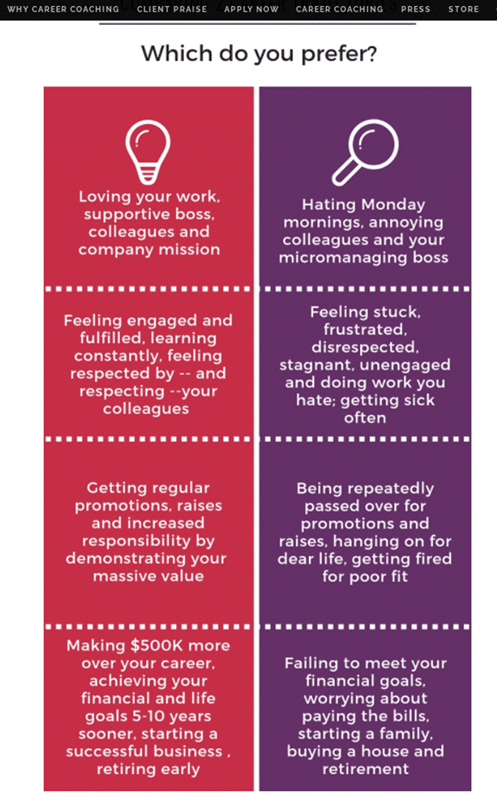
Good luck. No, I’m kidding.
You have to be very specific.
I’ve always been pretty good at convincing people to give me a chance. So, let’s say I’m a nobody and I come in, and I say, ‘Hey, you know what? I love your company. I’d love to do this.’
They would say something like, ‘Oh, well, that’s great, and your background is awesome. We see the world in a very similar way. But we need you in this other function,’ and I go ahead and say, ‘okay, great. I’m happy to help, whatever I can do’ and then it turns out to be this utter disaster.
That happened to me several times. I talked my way into things just way beyond my actual skill level, and I had to ramp up like crazy from scratch. From walking in off the street to an associate director of finance and operations at a VC-backed startup, that kind of stuff is unheard of.
Even if you get into it and it’s the wrong place, or you didn’t do your due diligence, you’re going to get screwed. So I burned out from there within a few months.
Instead of rushing to take the first job that you can or the best thing that you have available, the bottom line is doing the hard work as soon as possible to figure out what your mission is. What problems do you want to have solved in 10 years?
Look at values, meaning other people’s personality traits that inspire you and push you hard to become your best self and professional.
Look at the channels through which your energy travels the best when you’re doing work. whether you’re:
- An evangelist
- An operator
- A niche expert
- A caretaker, or
- A strategist
Look at the same thing in your personal life. Where does your energy go when it’s not impacted by work or money?
Then look at your negative scripts — what’s sitting in your head telling you you’re not good enough or you don’t have the right experience. And just realize that’s your fight or flight going nuts. So, tune it down; it’s not that bad.
You don’t have to be an expert when you start your first job. You don’t have to be the most skilled person when you’re starting a business. That’s not how it is.
The last piece is
- What are your founding stories?
- What are your formative experiences?
- What misadventures have you had?
- Are you an immigrant?
- Have you come from a single-parent family?
- Have you been divorced?
What’s your baggage? Because your baggage is not something to hide. It’s something that makes up your stories and your narratives.
You’ve solved problems for yourself. Now you can help others do the same, and you can turn that into a career. You can turn that into revenue, but you have to be crystal clear on who you are and where you’re going.
12. What’s one fascinating thing about “Master The Talk” you’ve never talked about to anyone?
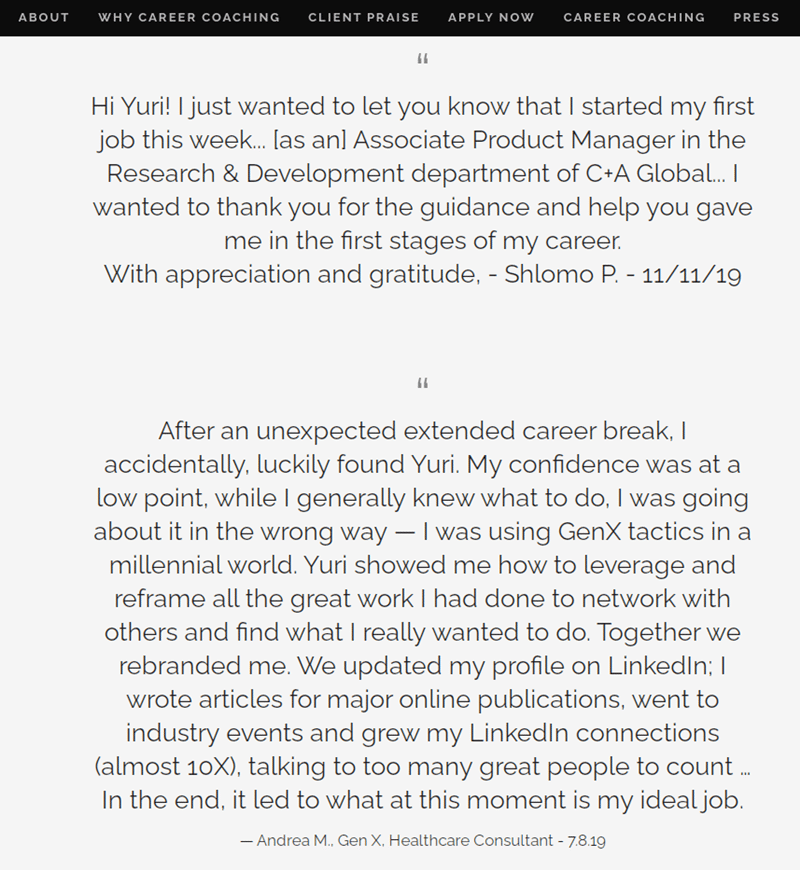
Where did the name come from?
I don’t think I talk about that a lot.
The truth is, when you’re starting a business, one of the first things you think about is ‘Crap! What do I call this thing?
And you look around at all these different coaching companies, and you realize something that doesn’t resonate.
What it came down to was ‘what am I really good at?’ and ‘what have I consistently done well?’
The truth is I’ve always been a really good talker. I’ve always been able to help people by talking them through things. I’ve always been shockingly good in some ways and unreasonably good at getting certain kinds of jobs where I clearly had no business being.
That’s a blessing and a curse, as I mentioned.
The point is that my lenses for seeing the world are language and psychology. And that’s how I’ve seen the world my whole life.
So for me, that’s a conversation. Whether that’s a conversation with other people, in my head, or something else. That’s why it’s called Master The Talk.
13. According to a Bloomberg data analysis, people who switch jobs get a compensation growth of about 5.3%. Do you think this is something that happens to anyone that switches career regardless of the career type?
Yes, of course. It depends wildly on your industry and level. Nobody is going to magically say, ‘Hey, you were making 250,000 as a banker, and now you’re coming into some kind of nonprofit.’ Nobody’s going to pay you anything close to that kind of money; just being realistic.
“You have to figure out what you’re good at and what you want to do. You have to have a path.”
If you’re going to take a pay cut, you can’t magically adjust your lifestyle to becoming a monk after being a banker. You have to have a plan. What is my plan for getting back to that, through my new chosen path?
One of the factors you have to look at is the income growth in this line of work and career pathway. You can’t just ignore that unless you’re independently wealthy.
14. What makes Master The Talk stand out from its competitors and why?
I would say two things. Number one is I’m very much centered on stories. So everything comes from my whole methodology framework.
Everything comes from my own story, and me having had to figure it out from scratch because I was never very good at asking for help until I became a coach myself.
The other part is that I look at things in a much more holistic and human way so that I’m not trying to squeeze some kind of personality type out of every person, or I’m not trying to bucket anyone. I know that each person does need some particular help with certain things. So, I focus very quickly on what those areas are.
I don’t waste a lot of time in places where the person’s really good. If the person is great as an interviewer or negotiator, I’m not going to spend time on that.
I’ll help them figure out how to leverage their story and how to get them unstuck from where they are. It’s usually them hiding somebody from their founding stories.
About Master The Talk
In 2013, Yuri Kruman founded Master The Talk from his experiences in five industries. He drew out insights from his roles as janitor up to CEO to help entrepreneurs and Millennial professionals. Now, they can do their best work while they reconnect with their human essence.
This platform coaches clients from every industry and career stage break bad career habits. So, they can move from one job or career to another while identifying their competitive advantage.
